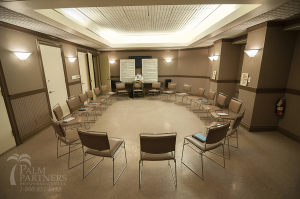By Cheryl Steinberg
When it comes to AA, NA, CA, or any other 12 Step group, anonymity is a highly-regarded notion; after all, the ‘A’ stands for “anonymous.”
If you are a member of a 12 Step fellowship then you are well aware of the 12th Tradition, which states: “Anonymity is the spiritual foundation of all our traditions, ever reminding us to place principles before personalities.”
But there is currently a movement that hopes to change the negative stigma that remains attached to addiction, you know the one, that if you’re an addict, you’re a bad person. Although the ‘disease model’ of alcoholism, which says that substance abuse is a medical disorder and not a moral failing, has been around for over half a century, the word addiction still carries with it a negative connotation.
The movement, I Am Not Anonymous, stands behind the idea that, in order to change the face of addiction, we need to actually show our faces, humanizing addiction and proving that we are not the dregs of society. We are mothers, fathers, professionals, business owners, artists, and so on.
I Am Not Anonymous
From their Facebook page: “People in recovery courageously come forward to change the stigma of addiction by breaking their silence.”
On the I Am Not Anonymous website, they state their mission:
“For years, those suffering from addiction have done so in silence as a result of the negative stigma surrounding it. The truth is, people DO recover. Our mission is to bring the SOLUTION into the conversation in hopes of helping the millions of people who remain untreated and help the world understand that addiction is not a moral failing. It is a powerful disease and the stigma associated with it is just as deadly as the disease itself.”
One of the creators, Kate Meyer, shares her story of how she came to create the foundation. Kate says that, “Most of the time, conversations regarding addiction are heavily focused on the problem… it is time to start talking about the SOLUTION as well as the problem … There is RECOVERY out there and it is REAL. People in recovery have the power to tell their stories and tip the scale. The general public needs to know that recovery is POSSIBLE. IT WORKS. People in recovery are some of the most incredible, inspiring, powerful and spiritual people I have ever met. People in recovery have the power to change the way that world views addiction.”
The other creator of I Am Not Anonymous, Thomas Goris says, “I tell my story today because my silence will contribute to the negative stigma of addiction resulting in more deaths due to addiction. I tell my story because the epidemic is only getting worst by the day, and if I choose to remain silent I’m not helping the human race see the truth about addiction.”
So, would you break your anonymity to change the addiction stigma?
I, for one, believe in speaking up and out about addiction and what it means to be a person in long term recovery from a lifelong disease. It might seem tricky, reconciling what seem to be two completely opposing ideas: one, to uphold the tradition of anonymity and the other, to break your anonymity.
But I see them as two, mutually-exclusive concepts. As a 12 Step member, I respect the anonymity of my fellows. I also don’t share what fellowship I belong to. As far as I understand the literature, that’s what is meant by the anonymity clause.
When I am outside ‘the rooms,’ I speak openly about being a person in long-term recovery. I feel that it is my duty to carry the message of hope wherever I go. Because of the negative stigma of addiction, many addicts continue to suffer and die – because they are afraid to accept that they have the disease and they’re afraid to tell their friends and family, for fear of being judged.
If you are struggling with a substance abuse disorder or drug addiction, just know that you are not alone. As many as 1 in 7 people – and some statistics say 1 in 3 – are affected by the disease of addiction. The other good news is that there is help and that recovery is possible. Please call toll-free 1-800-951-6135 to speak with a caring and compassionate Addiction Specialist. We are available 24/7.
